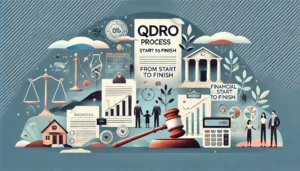Understanding Housewife Divorce Rights: A Comprehensive Guide to Empowerment and Justice
Divorce is a challenging and life-changing experience, especially for housewives who may have dedicated their lives to nurturing their families and managing their homes. It can feel overwhelming to face a legal system that may seem complicated or intimidating. But knowledge is power. By understanding your legal rights and taking proactive steps, you can navigate this transition with confidence and security.
This guide will walk you through the key aspects of divorce rights for housewives, providing detailed insights and linking to valuable resources for deeper understanding.

The Importance of Knowing Your Rights
As a housewife, you might feel uncertain about what lies ahead during and after divorce. Many housewives worry about financial stability, child custody, and how their contributions as homemakers will be valued in the eyes of the law. It’s essential to know that the legal system recognizes the vital role housewives play in a marriage. Your efforts in building a home and supporting your spouse’s career are seen as significant contributions, which often entitle you to financial support and a fair share of marital assets.
For more on why housewives must be proactive in understanding their rights, check out this helpful guide from Legal Aid Society.
Financial Support: Alimony and Maintenance
One of the primary concerns for housewives during divorce is financial stability. If you have been financially dependent on your spouse, alimony (or spousal support) can provide the assistance you need to rebuild your life.
Types of Alimony:
- Temporary Alimony: This support is provided during the divorce proceedings to cover immediate needs.
- Rehabilitative Alimony: Designed to help you gain skills, education, or training to re-enter the workforce.
- Permanent Alimony: This long-term support is granted in cases where the marriage lasted many years, or if you are unable to become self-sufficient due to age or health concerns.
Courts consider several factors when determining alimony, including:
- The length of the marriage.
- The lifestyle maintained during the marriage.
- Your contributions as a homemaker and caregiver.
- Your spouse’s ability to pay.
For a deeper understanding of alimony calculations, visit Nolo’s guide on spousal support.
Division of Property: Ensuring Fairness
Property division can be one of the most contentious aspects of a divorce. As a housewife, you are entitled to a share of the marital property, which includes any assets acquired during the marriage.
Key Considerations:
- Community Property States (e.g., California, Texas): Marital property is split 50/50.
- Equitable Distribution States (e.g., New York, Florida): Property is divided based on fairness, taking into account each spouse’s contributions and future needs.
Assets subject to division often include:
- The family home.
- Joint savings and investments.
- Vehicles and other tangible property.
- Retirement accounts accrued during the marriage.
Remember, non-marital property—such as inheritances or gifts received individually—is generally excluded from division.
Child Custody and Support: Protecting Your Children’s Future
If you have children, their well-being will naturally be your top priority during the divorce process. Courts aim to prioritize the best interests of the child, and as a housewife, you may have an advantage if you’ve been the primary caregiver.
Key Points:
- Custody Types: Physical custody (where the child lives) and legal custody (decision-making power).
- Child Support: Financial contributions from the non-custodial parent to cover the child’s expenses, including education, healthcare, and daily needs.
Maintaining detailed records of your role in your child’s upbringing—school involvement, doctor visits, and daily care—can strengthen your custody case. For additional resources on child custody rights, consider this detailed guide from DivorceNet.
Practical Steps to Prepare for Divorce
- Educate Yourself: Research local divorce laws and understand your rights under your jurisdiction.
- Document Everything: Keep records of all marital assets, debts, and your contributions to the household.
- Seek Legal Advice: A family law attorney can provide tailored advice and ensure your rights are protected.
- Build a Support System: Lean on trusted friends, family, or support groups for emotional and logistical help.
For affordable legal representation options, explore the Legal Services Corporation.
Frequently Asked Questions About Housewife Divorce Rights
Q: Will my role as a homemaker be recognized in court?
Absolutely. Courts value non-monetary contributions such as managing the household, raising children, and supporting your spouse’s career.
Q: Can I claim a share of my spouse’s retirement accounts?
Yes, retirement accounts accrued during the marriage are typically considered marital property. You may be entitled to a portion through a Qualified Domestic Relations Order (QDRO). You can also go through QDRO Process from Start to Finish
Q: What if my spouse tries to hide assets?
If you suspect hidden assets, an attorney can help uncover them through financial disclosure processes or forensic accounting.
Moving Forward with Confidence
Divorce may mark the end of one chapter, but it also opens the door to a new beginning. By understanding your rights and seeking the support you need, you can secure your financial and emotional well-being.
Whether it’s pursuing alimony, ensuring a fair division of property, or fighting for your child’s best interests, knowledge and preparation are your greatest allies. For further reading, explore this comprehensive overview of housewife divorce rights from Women’s Law.
Remember, you’re not alone in this journey. Lean on your community, legal experts, and trusted resources to guide you toward a brighter, more independent future.





